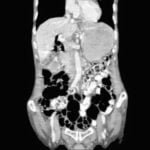When Cough Brings Up Blood: What You Should Know
Coughing up blood, even a small amount, can be very alarming. Doctors call this haemoptysis. The blood may appear as streaks in phlegm, or sometimes more heavily. While not every case is serious, blood in cough should never be ignored. It can be caused by simple infections, but also by more serious lung conditions.

What Can Cause Blood in Cough?
- Chest infections: Conditions like bronchitis or pneumonia can inflame the airways, sometimes causing blood-streaked sputum.
- Tuberculosis (TB): Still common in many parts of the world, TB often causes prolonged cough, fever, night sweats, weight loss, and sometimes blood.
- Bronchiectasis: A chronic condition where damaged airways become widened, leading to repeated infections and coughing up blood.
- Lung cancer: A serious cause that must be ruled out, especially in smokers or those with persistent cough.
- Blood clot in the lungs (pulmonary embolism): Can cause sudden chest pain, shortness of breath, and coughing up blood.
- Other causes: Trauma, foreign body inhalation, or certain medications (like blood thinners) can also play a role.
How Can You Lower the Risk?
Not all causes can be avoided, but healthy habits can protect your lungs and lower risk:
- Quit smoking: The single most important step to reduce the risk of lung cancer and chronic lung disease.
- Prevent infections: Wash hands regularly, take vaccinations (flu, pneumonia, TB where relevant).
- Manage chronic conditions: Asthma, COPD, and bronchiectasis should be followed up regularly.
- Stay active: Regular exercise strengthens lungs and immunity.
- Avoid air pollutants: Minimise exposure to dust, smoke, and chemicals at work or home.
- Medication safety: If on blood thinners, have regular monitoring and report any bleeding.
What Should You Do if You Cough Up Blood?
Even if you see only a small amount of blood, consult your doctor. Call emergency services immediately if:
- The bleeding is heavy or sudden.
- You feel breathless, dizzy, or develop chest pain.
- You have a history of TB, lung disease, or smoking.
Tests your doctor may recommend include:
- Chest X-ray or CT scan.
- Sputum tests for infection (including TB).
- Blood tests.
- Bronchoscopy (a small camera test to look inside the lungs).
Treatment depends on the cause:
- Infections may need antibiotics or antivirals.
- TB requires a specific long-term treatment plan.
- Bronchiectasis may need physiotherapy, inhalers, and regular follow-up.
- Pulmonary embolism or severe bleeding needs urgent hospital care.
- Lung cancer requires early specialist referral.
Key Message
Coughing up blood should always be taken seriously. In some cases, it is due to a mild infection that clears with treatment. But it can also be the first warning sign of something more serious. The safest step is to seek medical advice quickly, rather than wait and worry.
Join the mailing list!
Get the latest articles delivered right to your inbox!

